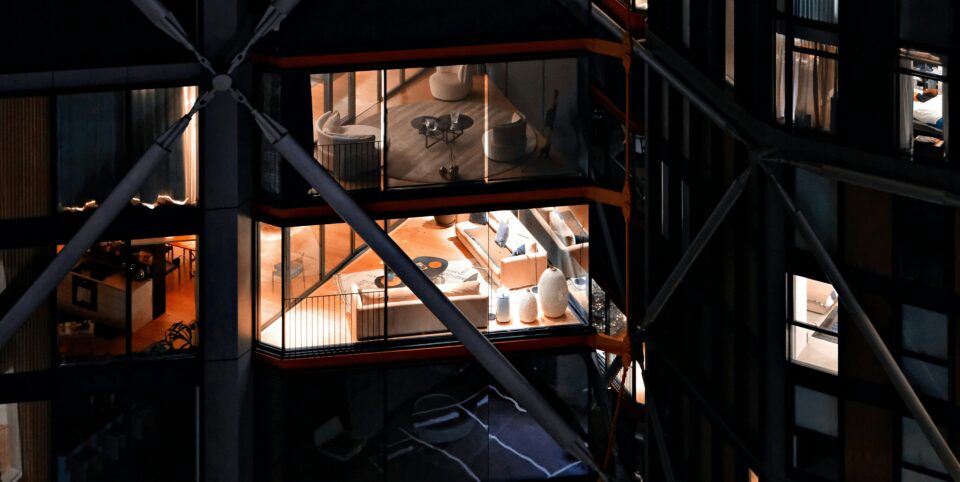Contact
020 4515 6728
info@ccameron.co.uk
Charles Cameron & Associates
Blackfriars Foundry
154-156 Blackfriars Road
London SE1 8EN
Are you contemplating the purchase of your flat’s freehold?
June 21, 2024
Information published was correct at the time of writing
Understanding the implications before you embark on this journey.

Feeling frustrated with exorbitant ground rents, hefty service charges or subpar maintenance from your freeholder? Contemplating the purchase of your flat’s freehold could be a worthwhile consideration.
There are several advantages to this course of action, such as the potential to extend your lease at a lower cost. However, it’s crucial to be fully informed about the required process and clearly understand the financial implications before you embark on this journey.
ASSESSING THE NECESSITY TO BUY A FREEHOLD
So, should you consider buying the freehold for your flat? Parliament is currently deciding on major leasehold reforms. You might choose to wait and see what happens with these reforms. But if you’re eager to proceed, remember that buying the freehold can cost approximately as much as extending the lease of the property.
Furthermore, buying the freehold of a flat is slightly more complicated since you’ll need to involve the other residents of the block. While you’ll still have to contribute towards service charges, you’ll gain more control over how much these charges are.
It’s important to note that you still have a lease if you own a flat and a share of the freehold. However, you should be able to extend it for free. It’ll be from a new entity that owns the freehold, of which you’ll be a part.
THE STARTING POINT, ELIGIBILITY
The first step to purchasing the freehold of your flat is to ensure you meet the necessary requirements. These stipulate that the building must house at least two flats, and no more than a quarter of it should be dedicated to non-residential purposes.
Thus, if the majority of the building is utilised as office space or retail outlets, it may not be possible to buy the freehold. Here is a list of criteria you need to fulfil to qualify for the purchase.
GETTING YOUR NEIGHBOURS ON BOARD
Once you’ve confirmed your eligibility, it’s time to engage your fellow residents. At least half of the flats in the building must express interest in buying the freehold. If you’re all currently dealing with high ground rents or if your freeholder consistently opts for the most expensive services, rallying support might be relatively straightforward.
ESTIMATING THE COST OF THE FREEHOLD
Now comes the crucial part, determining the cost of the freehold. It’s challenging to provide an exact figure as the price of freeholds can vary as much as house prices do. Some guides suggest that buying your freehold should cost approximately the same as extending your lease by 90 years. However, treat this figure as a rough estimate. You’ll need to get an accurate valuation from a certified surveyor, which will incur its own costs. Remember, the shorter your lease, the more expensive the freehold will be.
SECURING RELIABLE LEGAL ADVICE
Remember that expert advice is essential when navigating the complexities of a freehold purchase. Securing a solicitor specialising in this area is vital to guide you through the process. Obtaining sound legal advice is non-negotiable in this process. Not every property solicitor will have experience in freehold purchases, so it’s crucial to find one that specialises in this area.
ACCOUNTING FOR ADDITIONAL COSTS
Like most property transactions, purchasing a freehold comes with other fees. In addition to the valuation costs, you’ll have to cover the solicitor’s fees and the freeholder’s legal fees and valuation costs. Unfortunately, these costs are your responsibility!
PLANNING YOUR FINANCES
Once you’ve got a clear idea of the total cost, it’s time to ensure you can afford it. Many mortgage lenders are willing to extend your mortgage to facilitate the purchase of the freehold. However, having this discussion early on is beneficial to confirm if this is a viable option for you.
THE PARTICIPATION AGREEMENT
Your solicitor will need to draft a participation agreement for each flat involved. The importance of this cannot be overstated; it prevents the possibility of someone opting out at the eleventh hour, which could escalate costs for others or reduce the number of willing participants below the required 50%.
The participation agreement serves as a contract among leaseholders participating in the freehold purchase and outlines all agreements between them, including terms for lease extensions post-acquisition.
“Many mortgage lenders are willing to extend your mortgage to facilitate the purchase of the freehold.”
PROFESSIONAL VALUATION OF THE FREEHOLD
At this juncture, it’s time to transition from rough estimates to a professional valuation of the freehold. Engaging a surveyor with proficiency in this area can provide invaluable guidance throughout the process.
ESTABLISING A COMPANY TO AVERT POWER STRUGGLES
For the freehold purchase, either one member must step up as the ‘nominee purchaser’ or a company must be established. The latter is generally safer, circumventing potential disputes or power struggles. However, it’s worth noting that setting up a company bears its own responsibilities, such as setup costs and timely filing of company accounts.
ISSUING A TENANT’S NOTICE, THE STATUTORY ROUTE
If appropriate, leaseholders should pursue the statutory route over an informal offer when purchasing the freehold. Your solicitor will need to issue a ‘tenants’ notice’ to the landlord, essentially requesting the purchase of the freehold. Signed by all involved leaseholders, this notice prompts the landlord to serve a ‘notice in reply’ within two months. The landlord can agree to sell or provide reasons for disagreement. Be prepared – the landlord can request a deposit equivalent to three times the annual rent.
NEGOTIATING WITH THE LANDLORD, THE CRUCIAL STAGE
Once the landlord agrees to sell, negotiations on the price can commence. However, it’s crucial that all notices served on the landlord are correct. Incorrect notices could result in a 12-month wait before they can be served again. Hence, the importance of engaging a specialist solicitor.
THE FINAL RESORT, FIRST TIER TRIBUNAL
If negotiations reach an impasse or the freeholder is unwilling to sell, your case can be taken to the First Tier Tribunal within six months of the notice in reply. This body arbitrates such disputes and determines the cost.
Don’t forget, our professional friendly advisors are on hand to support you and can help you explore all of your options.



